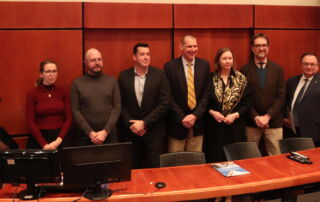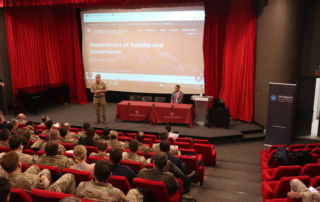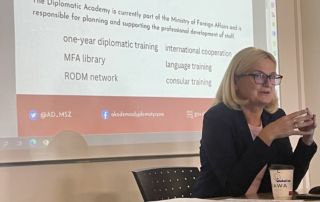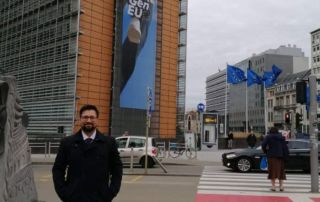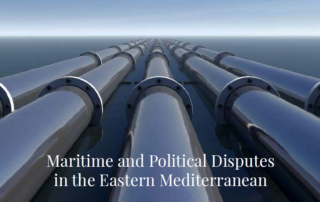DA Co-organised Roundtable Event with Officials and Diplomats on Disinformation
On 24th February 2023, the Diplomatic Academy co-organised a well-attended public roundtable discussion at 14:00 at Room -M203 (Millennium Building, University of Nicosia), in cooperation with the Embassy of Ukraine, the British High Commission, [...]

